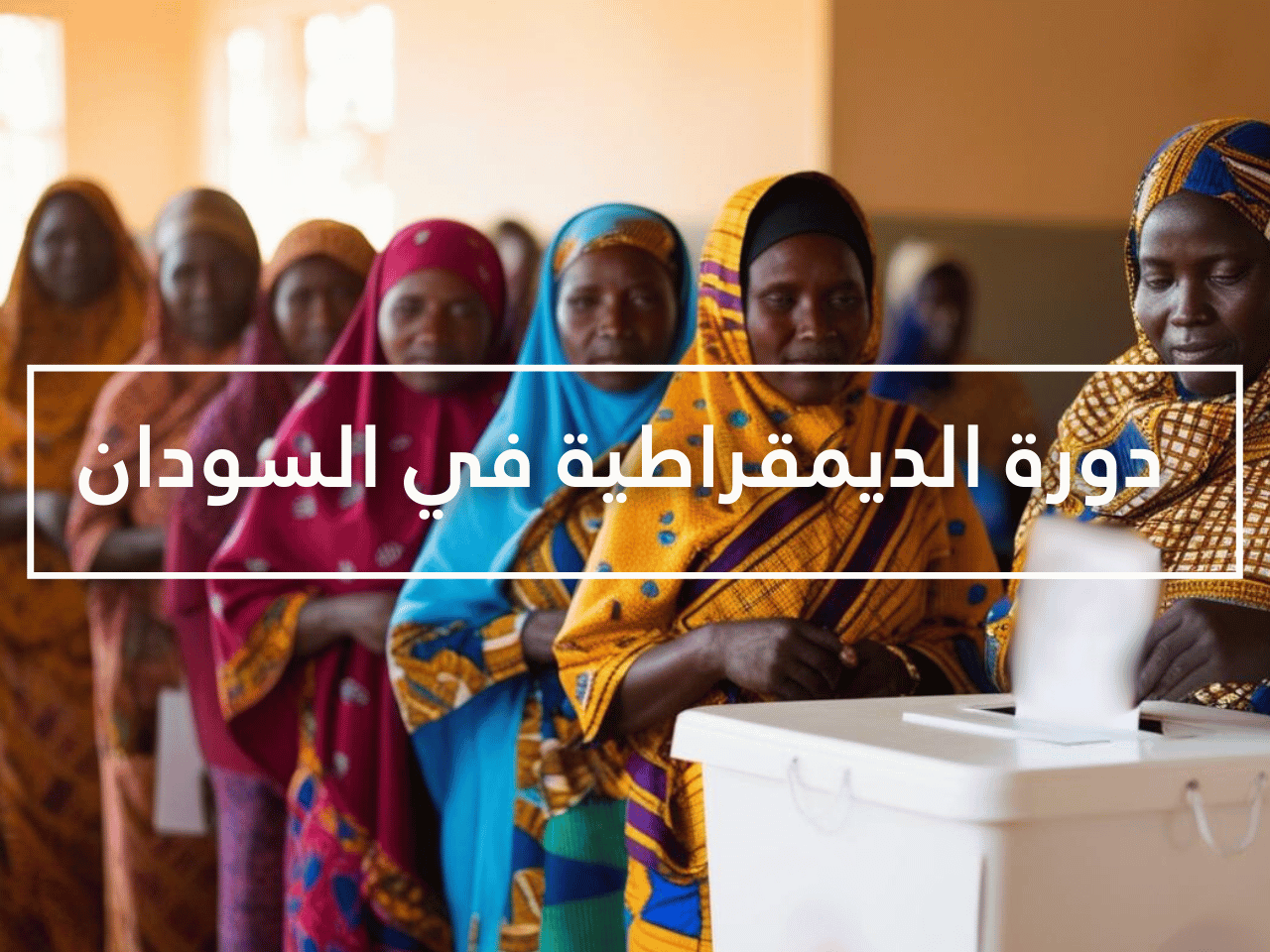Overview
This training was conducted in Arabic over five weeks between May and June 2024, online. It aimed to empower participants with a deep and comprehensive understanding of democracy and its dimensions in the Sudanese historical context, as well as an understanding of various related topics such as the concept of power, social movements, civil society, constitution-building, development, women's participation, and other important issues.
Course Structure and Duration
This training course relied on a variety of training methods, including interactive lectures and group discussions, providing participants with the opportunity to...
...engage in discussions and connect with the alumni network. It included the following elements:
- Guidance Session:
- The program begins with an orientation session conducted via Zoom in the afternoon, Khartoum time. During this session, the program details and instructions on how to join the training course were explained.
- Lectures: The course lasted for five weeks, with each week featuring two lectures.
- Discussion Sessions: The discussion sessions were held via Zoom on Sundays and Mondays each week. Participants were divided into groups, with each group assigned a specific day and time.
- Certificates: Participants can obtain a certificate from the AMEL Institute upon completing the training material, passing the exams, and filling out the final survey.
Impact and Outcomes:
A total of 396 participants attended the training course, with 181 completing all the requirements from various regions across Sudan. Participants' ages ranged from 20 to 45 years, with the majority (around 70%) between 25 and 35 years old. 40% of the participants were female, and 60% were male.
Course Topics:
- Concepts of Democracy: Definitions, Forms, Types, History, Measurement, and Setting Realistic Expectations.
- Democracy and Development: The Relationship Between Democracy and Development, with a Focus on Sudan and Sub-Saharan African Countries.
- The Political History of Sudan: Key Events, Their Impact on the Current Democratic Transition, and Lessons Learned.
- Democratic Transition: Theories, Conditions for Democracy in Sudan, and Global Examples.
- The Failure of Democracy in Sudan: History of Failure, Theories of Instability, and Political Settlement Theory.
- Constitution Building: The Process, Significance, and Lessons Learned from Sudan's History.
- Civil Society and Political Parties: Roles, Definitions, and Their Normative Functions in Democracies and in Sudan.
- Social Movements and Social Change: Types of Social Movements, Their History, and Their Impact on Social Change in Sudan.
- Political participation of women:The Importance of Inclusive Participation, Especially for Women, in the Democratic Transition in Sudan.

